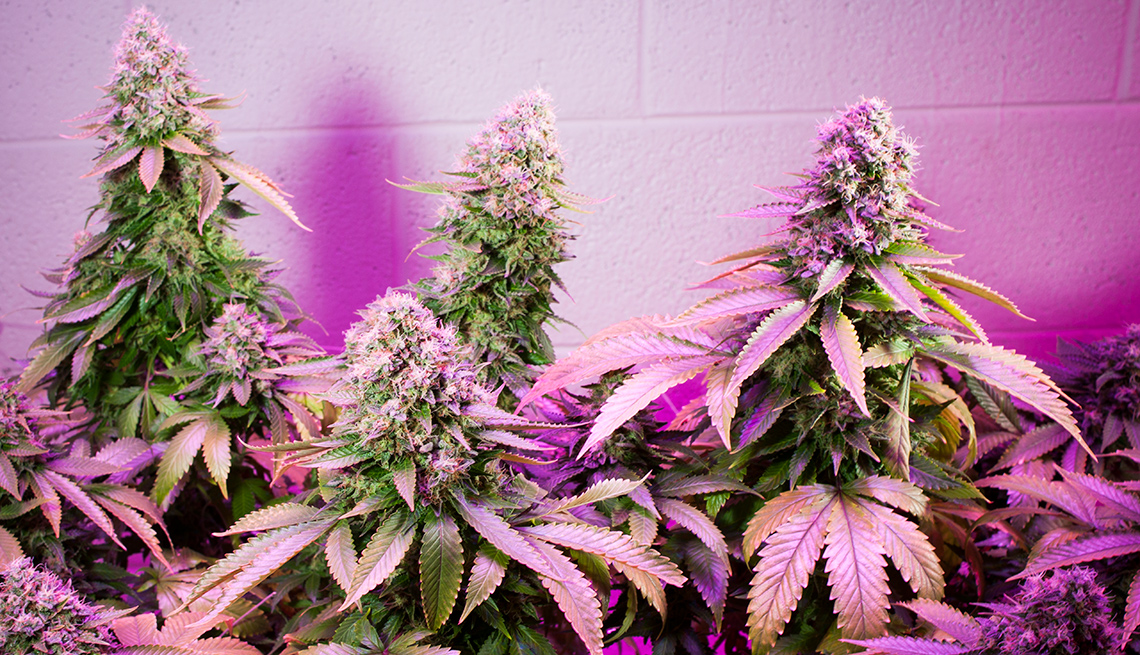New AARP survey shows marijuana is perceived as less addictive than painkillers
 |
| Get REAL answers to Your Questions about Medical Marijuana Here |
BRIAN FINKE/GALLERY STOCK
Eighteen percent of respondents in a recent poll said they personally know someone who uses marijuana for medical purposes.
Older Americans think marijuana is effective for pain relief and should be available to patients with a doctor’s recommendation, according to a new University of Michigan/AARP survey.
The majority of the adults age 50 to 80 responding to the National Poll on Healthy Aging say they believe medical marijuana is effective for pain relief, appetite loss and anxiety. Eighty percent say they strongly or somewhat support its use when a doctor consents. Sixty percent do not support the use of medical marijuana without a doctor’s recommendation.
Six percent of those surveyed report personally using marijuana for medical reasons. That percentage is relatively high compared with prior studies, says Preeti Malani, professor of internal medicine at the University of Michigan and director of the poll.
Eighteen percent of respondents say they personally know someone who uses marijuana for medical purposes. “I’d say this is a tipping point for medical marijuana,” says Alison Bryant, senior vice president of research at AARP. “As more of a person’s acquaintances use it, it becomes more normalized.”
Several survey questions asked respondents to compare the effects and addictive nature of medical marijuana with prescription pain medication. Nearly half of those surveyed say prescription drugs are more effective for treating pain, compared with 14 percent who say marijuana is more effective. But 48 percent say prescription drugs are more addictive than marijuana, compared with the 14 percent who say marijuana is more addictive.
“We don’t know for sure if marijuana is less addictive or more effective than prescription drugs,” says Malani, who says the absence of studies on the safety of medical marijuana could put patients at risk. “There are no standardized doses for medical marijuana,” Malani says. “A doctor may give you permission for it, but the person advising you in a marijuana shop may not have the training to know which kind and which dosage is best for your needs.”
Malani says it’s important for individuals who decide to treat their symptoms with medical marijuana to discuss it with their primary care physician. The survey results suggest this type of communication isn’t happening. Of the 6 percent of respondents who use medical marijuana, only half say a doctor recommended it and more than half say their primary care physician doesn’t know they use it.
“We already worry about memory loss with this population,” Malani says. “Is it accelerated in older adults who use medical marijuana? Older people may be more vulnerable to marijuana’s effects. Now that more than half of the states have legalized medical marijuana, we need more research.”
The majority of survey respondents agree, with 64 percent favoring government-funded research to study the health effects of marijuana.
The survey also suggests that the number of older adults using medical marijuana will likely increase. Seventy percent of those surveyed say they would definitely or probably consider asking their health care provider about medical marijuana if they had a serious condition that they thought might respond to it.
The results are based on responses from 2,007 people ages 50 to 80. The National Poll on Healthy Aging is administered by the University of Michigan Institute for Healthcare Policy and Innovation and is sponsored by AARP and Michigan Medicine, the University of Michigan’s academic medical center. The poll has a margin of error of plus or minus 1 to 2 percentage points.
No comments:
Post a Comment